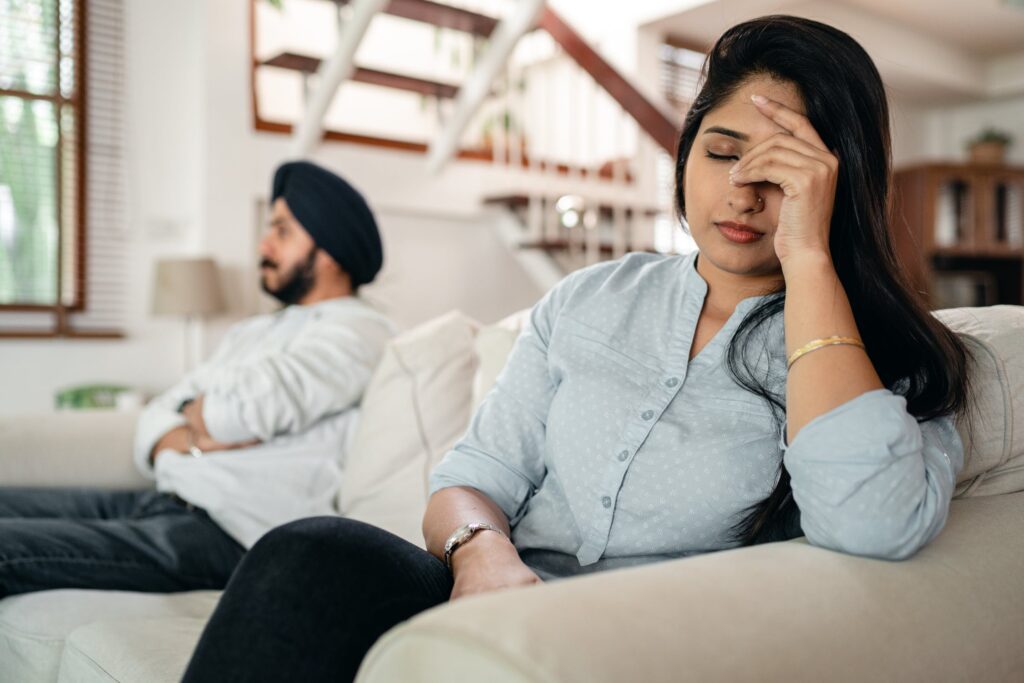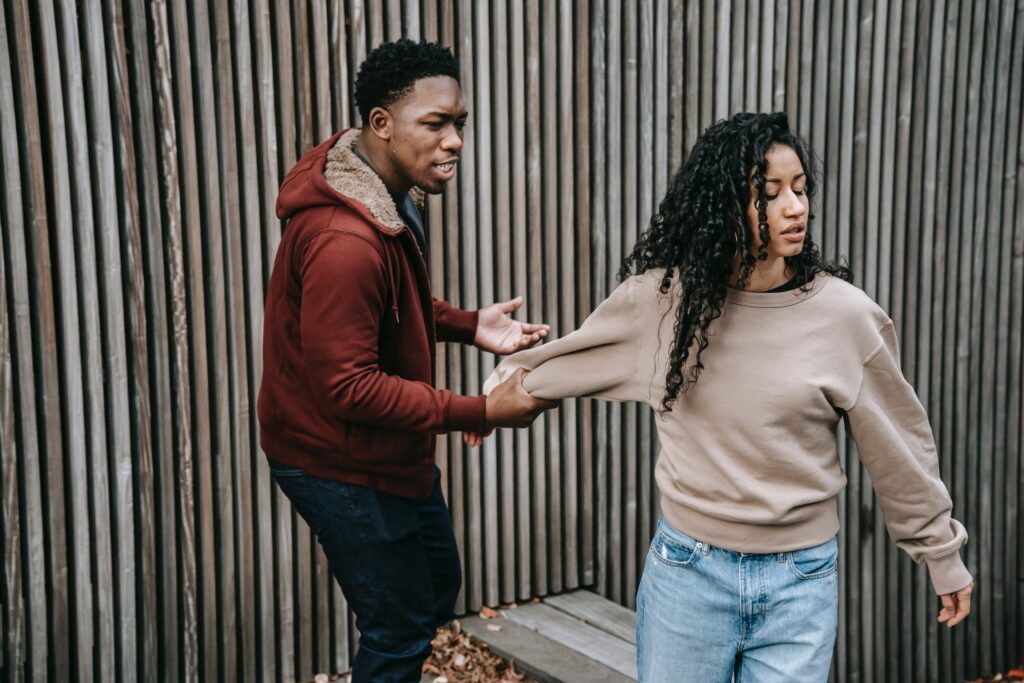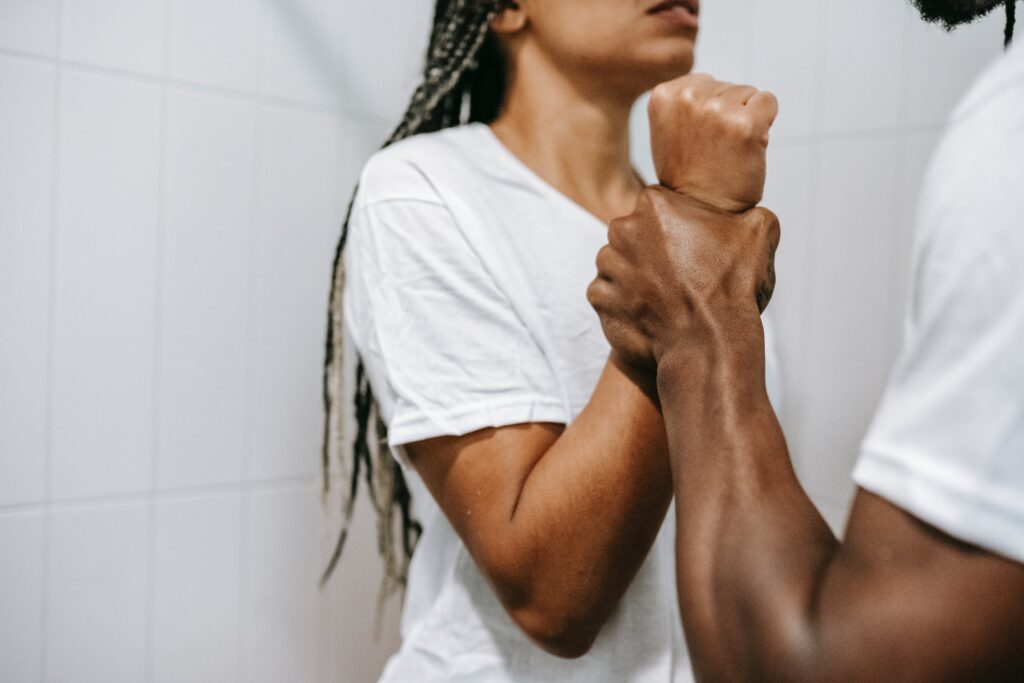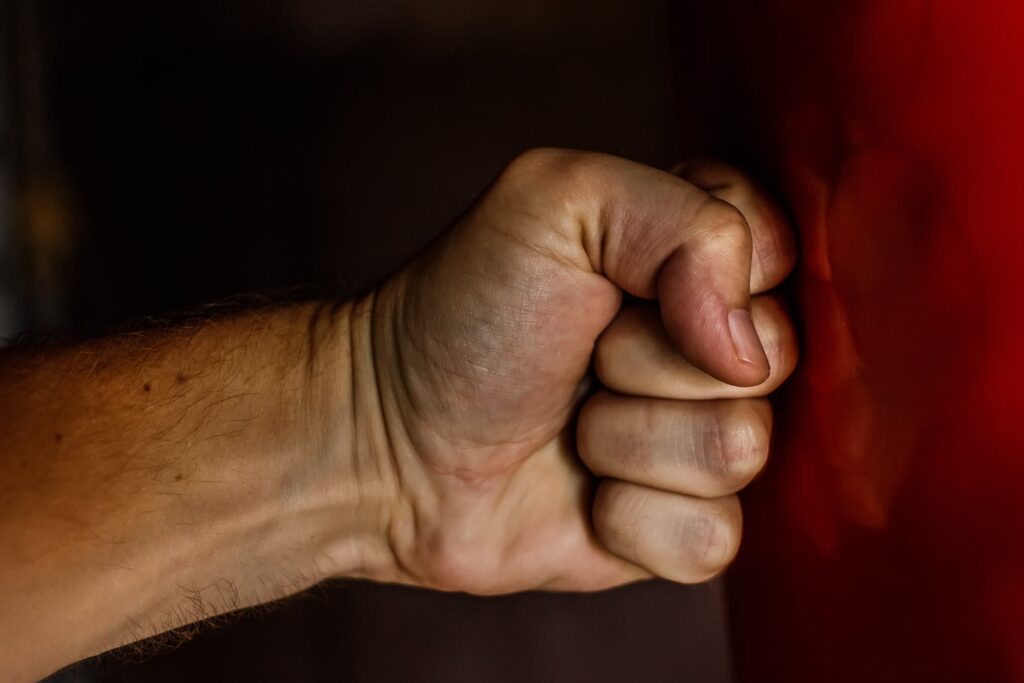In the United States, men are four times more likely than women to be shot to death, and one of the strongest predictors of violent crime is being convicted of a felony. Nearly 40 percent of all men in state prisons are serving time on a felony conviction. However, men are four times more likely than women to be shot to death, and one of the strongest predictors of violent crime is being convicted of a felony. Nearly 40 percent of all men in state prisons are serving time on a felony conviction.
In Western culture, it’s not uncommon to hear statistics about violence against women. But do we know enough about how this violence affects men and boys? What are the deeply hidden reasons behind this violence? And what can we do about it? “The 5 Hidden Reasons Men Become Violent” explores some of these problems, and the ways you can help boys deal with the issues that lead to violence.
A horrifying trend has swept the nation, and it may be one of the most sinister yet. The public’s fear of violent crime has led to a rise in violent crimes against women, particularly rape, assault, and murder.. Read more about male aggression in relationships and let us know what you think.
Each time a new outbreak of violence occurs, we concentrate our attention on issues such as gun control, mental illness treatment, and how video games, movies, and the media contribute to the problem. It’s critical that we have a broader discussion about violence, its causes, and how to avoid it. However, I think it is equally necessary to discuss males and violence.
Of course, women may be aggressive and contribute to a culture of violence, but violence is, in many respects, a male-dominated problem. It probably comes as no surprise that males commit more acts of violence than women. However, you may be surprised to learn that males are also more likely to be victims of violence.
Let’s take a closer look at violence. According to the World Health Organization, there are three different kinds of violence, all of which are interconnected:
* Suicidal conduct and personal damage, such as self-mutilation, are examples of self-directed violence.
* Interpersonal violence may be classified into two types:
- Family and intimate partner violence—That is, violence mostly between family members and intimate partners that occurs in the home, but not entirely.
- Community violence is defined as violence between unrelated people who may or may not know one other and occurs beyond the home.
* Collective violence is the intentional use of murder by persons who identify as members of a group against another group or collection of individuals to accomplish political, economic, or social goals. Armed wars within or between countries, genocide (the intentional and systematic annihilation, in whole or in part, of an ethnic, racial, religious, or national group), terrorism, and organized violent crime are all examples of collective violence.
Men are clearly engaged in all three types of violence, both as offenders and as victims. Despite the fact that violence against others grabs our attention, suicide kills more individuals than all kinds of interpersonal violence combined. “Every year, more than one million individuals die by suicide across the globe, which is greater than the number of people who die in wars, terrorist attacks, and murders combined.
According to Lanny Berman, Ph.D., president of the International Association for Suicide Prevention, “more individuals kill themselves than are murdered by others” (IASP). Furthermore, men kill themselves four times more often than females throughout the globe, and the suicide rate for males in the United States is four to eight times greater than for females, rising significantly with age.
Let’s take a look at the five contributing causes to male aggression.
1. The Male Brain Isn’t Designed to Feel Empathy

Violence is, at its heart, an inability to empathize. Empathizing is the desire to recognize and react to another person’s feelings and ideas with the right emotion. Rather of seeing themselves or others as human beings, violent men view them as objects. Violent individuals, as philosopher Martin Buber put it, view the world as I-It rather than I-Thou. Simon Baron-Cohen is a leading specialist on violence in the globe. “When our empathy is turned off, we are exclusively in the ‘I’ mode,” he writes in his book The Science of Evil: On Empathy and the Origins of Cruelty. We connect to objects or people as if they were simply things in such a state.”
Although most men are able to empathize with others and would never kill another human being, it’s more difficult for most men to empathize than it is for women. Why is that so? Research shows that our brains are more wired for systemizing than for empathizing. In his book, The Essential Difference: The Truth about the Male & Female Brain, Baron-Cohen says, “The female brain is predominantly hard-wired for empathy. The male brain is predominantly hard-wired for understanding and building systems.”
According to Louann Brizendine, M.D., author of The Male Brain, the brain has two emotional networks that link us to other people. Women’s brain structures make empathizing simpler for them. The masculine brain facilitates problem solving. Her study team discovered that the male-type brain “maintains a strong border between feelings of the’self’ and the ‘other.’” This protects men’s thinking processes from being contaminated by other people’s emotions, enhancing their capacity to solve problems cognitively and analytically.”
Have you ever observed how frustrated many women get when they tell a guy about their pains and pain? He jumps into problem-solving mode before taking the time to listen to her carefully and empathically. When she confides in a girlfriend, she may get much more empathy but far less problem-solving assistance.
Low Empathy’s Antidote: All guys can learn to be more empathetic. Put yourself in the other person’s shoes. First, pay attention to your emotions. Resist the need to fix the issue right now.
2. Males Have Higher Testosterone Levels

Theresa Crenshaw, M.D. is a prominent authority on how hormones affect human behavior across the globe. She explains, “Testosterone is a steroid hormone produced in the testicles, ovaries, and adrenals.” “It’s a sex hormone that’s mostly found in males, but it’s also found in women, albeit in much lower quantities. Men have approximately 8 to 10 times more of it after puberty than women.”
She paints a vivid picture of testosterone’s personality: “Testosterone is the youthful Marlon Brando—sexual, sensuous, seductive, dark, and deadly.” Our intense sex desire is fueled by testosterone. It’s also our ‘warmone,’ provoking aggressiveness, rivalry, and even violence.”
Testosterone levels in males fluctuate, as they do in most things in life (and women). Our average testosterone level is inherited from our parents, but physical and social factors influence how high it is. Criminality and violence are linked to testosterone levels. James Dabbs, Ph.D. is a world-renowned testosterone specialist. “While there is no direct link between testosterone and human crime, there is an indirect one,” he writes in his book Heroes, Rogues, and Lovers: Testosterone and Behavior. Testosterone causes aggression, which is often criminal.”
“The general image among the high-testosterone guys is one of criminality, drug addiction, and a propensity toward excess,” Dabbs concluded after studying 4,462 men. These high-T men, who made up about 10% of the sample, “have more trouble with people like teachers while they are growing up, have more sexual partners, are more likely to have gone AWOL in the service, and are more likely to have used hard drugs, especially if they had poor educations and low incomes,” according to the study.
Dabbs discovered that high testosterone levels were linked to more violent offenses, parole board judgments against release, and prison rule breaches in a separate study of young male prisoners. High testosterone levels were linked to unprovoked aggression, a higher number of previous convictions, and parole denials in women, according to Dabbs.
Strengthen family connections and urge dads to remain engaged with their children as an antidote to high testosterone. Children reared without dads are more likely to engage in delinquent conduct. “It’s ‘guystuff,’ and guystuff appears to be about building thing, repairing stuff, and blowing stuff up,” Dabbs’ wife Mary, a fellow researcher, said of their years researching testosterone: “It’s ‘guystuff,’ and guystuff seems to be about building stuff, fixing stuff, and blowing stuff up.” She came to the conclusion that it is the responsibility of parents to promote construction and repair while discouraging blowing apart.
3. Males produce less oxytocin than females

The hormone oxytocin, according to research scientist Paul Zak, Ph.D., may be the secret to much that is good in relationships. “Beginning in 2001, my colleagues and I performed a series of studies demonstrating that when someone’s level of oxytocin goes up, he or she reacts more freely and caringly, even with total strangers,” he writes in his book The Moral Molecule: The Source of Love and Prosperity.
Not only did oxytocin make individuals kinder, more empathetic, more trustworthy, but it also promoted the production of other hormones that enhanced the quality of their relationships, according to his findings. “When oxytocin is released in response to a favorable social input, the Moral Molecule releases two additional feel-good neurotransmitters: dopamine and serotonin. Serotonin is a neurotransmitter that lowers anxiety and improves mood. Goal-directed actions, drive, and reinforcement learning are all linked to dopamine. It encourages animals to seek out rewarding activities and helps them feel good about continuing to do so.”
Oxytocin causes the release of more oxytocin, which causes more empathy. It also inspires trust, which causes the release of more oxytocin, which causes the release of more oxytocin, which causes the release of more oxytocin, which causes the release of more oxytocin, which causes the release of more “We call this the virtuous cycle,” Zak explains of the behavioral feedback loop. However, oxytocin does not seem to be a hormone that is equally effective in all situations. It originated in women to aid in childbirth, nursing, and bonding, but it is not as widely accessible in males.
Testosterone also inhibits the action of oxytocin, and as we all know, men have considerably greater testosterone levels than women. Shelley Taylor, Ph.D., is a recognized stress and health specialist. In her book The Tending Instinct, she claims that the difference in oxytocin release between men and women explains women’s higher propensity to reach out for others when they are stressed (what she refers to as “tending and befriending”) rather than men’s “fight or flight” response.
Low Oxytocin Antidote: Fortunately, oxytocin levels may be readily increased. Two of the most effective strategies I’ve discovered are having a decent massage on a regular basis (I’ve been getting one every other week for the last 10 years) and being willing to trust people rather than being protective and afraid. Those who had a massage showed a 9% rise in oxytocin levels, according to Zack. However, when individuals had a massage while simultaneously strengthening their ties of trust, their oxytocin levels jumped by 243 percent.
4. Males have a smaller number of friends than females

I provide health and well-being seminars to men and women all around the globe. “How many of you have three or more close friends that you confide in and call out to in times of need?” I frequently ask the ladies in the audience. Almost every woman raises her hand. When I ask the males in the audience to raise their hands, virtually none do. Most guys have at least one close buddy. Frequently, it is their spouse. When a partnership has difficulties, most guys are left totally on their own.
Great friendships between men have been documented throughout history, and friendships between males have frequently been glorified and idolized. Traditionally, men’s friendships have been characterized in terms of courage and physical sacrifice in the service of others. However, interpersonal connections marked by intimacy and compassion for other males are seldom celebrated in these historical narratives. “This has been so because male norms have rendered those sorts of emotions improper and extremely suspect–they were unmanly,” says gender researcher R.R. Bell.
Despite popular perceptions of male friendship as romantic, studies have shown that males have substantially fewer friends than women, particularly intimate friendships or best buddies. Men, on the other hand, are more likely to have “activity buddies,” such as a weekly tennis partner or a drinking companion. Friendships are often built on favors exchanged rather than emotional support. Men can frequently improve their professions via these types of connections, but they fall short of what the majority of us need. As a consequence, many men feel alone and resentful.
In his book The Hazards of Being Male: Surviving the Myth of Masculine Privilege, Herb Goldberg, Ph.D. addressed the problem that many males confront. “For his manly ‘privilege’ and authority, the male has paid a high price. He is emotionally and physically disconnected. He’s following the parameters of the masculine game plan, and he’s killing himself emotionally, mentally, and physically like a lemming.”
Men are often shut off from the therapeutic benefit of friendship, and the issue only becomes worse as we grow older. As we become older, men tend to grow more solitary. According to studies, significantly more men than women have difficulty trusting others and seeking assistance from others, even health care experts. “He did not have friends,” according to a postmortem report on a 60-year-old man who committed himself. He didn’t feel at ease with other guys… He didn’t trust physicians and refused to seek assistance, despite the fact that he knew he needed it.”
Men frequently get sad as a result of being cut off from others and feeling growing inner anguish. In my study for my book, The Irritable Male Syndrome: Understanding and Managing the 4 Key Causes of Aggression and Depression, I discovered that males commit suicide at a far greater rate than women, and that suicide rates rise substantially as men become older. Men aged 65 to 85 murdered themselves almost ten times more often than women of the same age group. Men, unlike women, often “act out” their sadness by becoming more aggressive and, in extreme cases, violent. Elayne Boosler, a comedian, summed up the male/female divide when she said, “When women are sad, they eat or go shopping.” Another nation has been invaded by men. It’s a whole different mindset.”
Antidote for a Lack of Friendship: It may seem self-evident that males need more intimate friendships. However, it is difficult to form new connections, especially as we get older. However, it may be the most crucial thing we can do. After my first wife and I split, I joined a men’s organization in my late 30s. My discussion group has been meeting for almost 33 years. I just established a new men’s group. It is, in my opinion, the finest kind of health and life insurance.
5. Men React to Shame More Violently Than Women

We’ve all felt humiliation at some point in our lives. We feel insignificant and exposed. We want to vanish. “Shame is feeling alone in the abyss of unworthiness,” explains author Merle Fossum. Shame, he says, is far more deeply entrenched than most people think. “Shame is more than a poor self-esteem thermometer reading. Shame is similar to cancer in that it spreads on its own.”
People may feel terrible in a variety of ways, including shame and remorse. Despite this, the two are very different. Guilt is when we feel terrible about what we do or don’t do. Shame is when we feel terrible about ourselves, about who we are. I’ve discovered that men and women feel guilt in various ways. Men are more embarrassed of their emotions or how they are viewed by others, while women are more ashamed of their body. Women are much more conscious of their emotions of shame than males. Men suppress and hide their feelings of shame from themselves and others.
When we recall the nursery rhyme that describes the essence of masculine and feminine, most of us grin. “Little girls are made of sugar, spice, and all the good stuff. Snippets of snails and puppy-dog tails make up little boys.” But consider what this says about who we are. Most men, I believe, are raised to believe that there is something essentially evil about us and something inherently wonderful about girls. It may help explain why some males behave arrogant and push women down. We want to feel wonderful on the inside, yet we’re scared we’ll always be broken goods. We want to be liked and appreciated for who we are, but we believe that the only way to do so is to attain worldly success. However, no matter how much we accomplish, we never feel fully deserving.
James Gilligan, M.D. is the former head of Harvard Medical School’s Center for the Study of Violence. His works, Violence: Our Deadly Epidemic and Its Causes, Preventing Violence: Prospects for Tomorrow, and Some Politicians Are More Dangerous Than Others, help us better comprehend the connection between masculinity, shame, and violence.
When we learn of a particularly severe crime perpetrated by a guy, we are frequently perplexed as to what may have precipitated it. Gilligan was able to get to the root of the problem after dealing with thousands of aggressive guys. “I have yet to see a major act of violence that was not prompted by feelings of shame and humiliation, contempt and mockery, and that did not reflect an effort to avoid or correct that ‘loss of face’—no matter how harsh the penalty, even death.”
Men want for respect and may turn aggressive if they are denied it. “When I questioned why they had attacked someone, the prisoners I deal with frequently told me it was because ‘he insulted me,’” adds Gilligan. The word “disrespect” is so important in these chronically violent men’s lexicon, moral value system, and psychodynamics that they have shortened it into the slang phrase “he dissed me.”
Antidote for Shame: I’ve discovered that accepting our shame rather than denying it is one of the first steps we can take in dealing with it. Shame flourishes in the dark, but when we put the light of consciousness on it, it fades away. According to Gilligan, violent men (and all men to some extent) have a well kept shame secret that most would rather die than disclose. “The truth is that they are embarrassed—deeply ashamed, persistently ashamed, painfully ashamed—over things so little that feeling ashamed about them is made even more embarrassing by their insignificance, so they are afraid even to disclose what shames them.” Then we need to be able to speak to a trustworthy friend, family member, or therapist about our shame. Men are also mistreated in society in a variety of ways, including jokes, media depictions, cutting comments, and put-downs.
Men and women were asked what they were most frightened of in a poll. Women expressed their greatest fear of being raped and killed. Men expressed their greatest fear of being laughed at. These two phobias are now known to be linked. We must improve our regard for every human being on the world if we want to decrease violence, and this begins with valuing those closest to us: our friends, our children, and ourselves.
I’d love to hear what you have to say. Please leave a remark or ask a question in the box below. You can also join the discussion by following me on Twitter: @MenAliveNow
According to the United States Department of Justice, 7% of American men are currently in jail, and another 10% have been incarcerated at some point in their lives. The trend is not limited to the U.S. According to a recent UN report, over 1.25 million men are behind bars in the world’s 73 countries.. Read more about aggressive partner and let us know what you think.
Frequently Asked Questions
What are 4 causes of violence?
There are many causes of violence, but some of the most common include poverty, racism, and a lack of education.
What makes someone a violent person?
A violent person is someone who has a history of violence, or who has been convicted of a crime.
Which of the following may be indicators of aggressive Behavior?
The following may be indicators of aggressive behavior: -Hitting others -Threatening others -Destroying property




